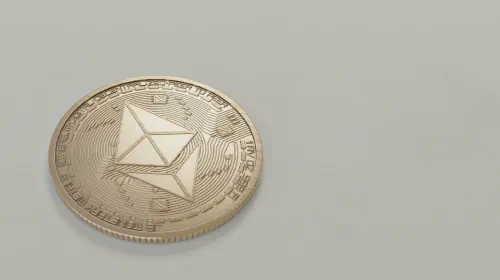Blockchain Security Audit: Definition, Process, and Importance
Salomon Kisters
Jun 28, 2022This post may contain affiliate links. If you use these links to buy something we may earn a commission. Thanks!
A blockchain security audit is a secure technology that supports high-value transactions taking place on a blockchain. The process involves the use of sophisticated code analysis that identifies any loopholes in the system and eliminates any vulnerabilities in these applications.
A blockchain audit is an excellent tool to assess a company’s operations and ensure that the records are as accurate as possible. While information sourced externally is generally trustworthy, it is still possible for human errors to affect recorded transactions.
Unlike a traditional database, a blockchain is immutable, so the processing of data is highly accurate. A blockchain auditor’s role is to mitigate risks associated with the accuracy of digital assets.
Using blockchain as a database for transactions may sound like a great idea, but there are also risks to consider when implementing this technology. The most significant risk is compromised access to the private key, which breaks encryption.
Security controls should be in place to protect the private key, but these measures are only as effective as the implementation and consistency of the procedures. Automated analysis of smart contracts can reduce the cost and complexity of a smart contract audit.
Automated analysis simplifies the audit cost
Blockchain technology is transforming many aspects of business today, including the auditing function. As blockchain becomes a common tool for corporations, it can further serve to improve the auditing process.
Blockchain-powered audits are more collaborative, cost-effective, and reliable. Blockchain audits help improve the efficiency and reliability of the verification process and allow auditors to focus on strategic advisory services rather than controlling information.
There are many other potential benefits to a blockchain audit. They are highly secure and designed to be both safe and easy to use.
Blockchain audits are particularly useful in companies that use this technology for internal operations. With its ability to automate processes, blockchain makes it possible for auditors to gain insight into how data is entered into a chain.
By allowing the audit process to be automated, auditors can focus their time on adding value and strengthening existing control systems and other risk areas.
Blockchain audits are particularly useful in companies that use this technology for managing internal operations. Using blockchain in audits will also allow auditors to perform strategic roles for their clients.
The technology enables them to conduct in-depth analyses of data, which helps derive useful interpretations for decision-making. This will increase the usefulness and relevance of the audit for the client.
Blockchain auditors will also be able to gain legitimacy by making their recommendations based on this information. A blockchain audit will help to improve the credibility of auditors and enhance the quality of their audits.
Smart contract security audit
One of the biggest changes to the audit process after the introduction of blockchain technology involves the integration of contractual rights into the network.
Smart contracts automatically execute transactions. They help reduce costs associated with authentication and minimize the chance of fraud. They also facilitate secure management of document and transaction flows.
Automated analysis is a key part of the smart contract audit process. This process involves identifying errors in the code to reduce the cost of the audit.
Testing includes the development of units and integration to test individual functions. Afterward, the analysis stage is necessary to determine the validity of the smart contract.
Recently, the demand for secure smart contract codes has grown significantly. This has sparked a need for automated analysis. Smart contracts will allow auditors to access data directly.
By signing blockchain transactions with smart contracts, auditors will have continuous access to data and analysis. Ultimately, blockchain audits will be much easier to perform.
Although automatic analysis is a helpful tool in identifying common vulnerabilities, it cannot detect all security flaws. Its purpose is to find security flaws and vulnerabilities in the code.
It is a necessary step in crypto security because smart contracts run on complex sets of self-executing code. A smart contract audit can help you secure your contract and give you peace of mind.
Furthermore, these programs do not understand the intentions of developers, which means that manual verification is still necessary.
Automated analysis, on the other hand, reduces the cost of the smart contract audit by allowing for significant time savings.
A team of experienced auditors will review the specification and verify the implementation of the project. They can also recommend ways to improve the security of the smart contract code.
A new framework called SmartBugs has been developed to simplify the execution of analysis tools. Currently, this framework supports nine analysis tools and automates the process of identifying and correcting them.
In this way, it not only helps in performing automated analysis of smart contracts but can also make it easy to create smart contract audit reports.
By far, the most important part of the smart contract audit process is the specification. A good specification contains a clear description of the architecture of the smart contract.
It also contains information regarding the build process and design options. A project README file contains an example specification.
Once the specification is finalized, the audit team should discuss its outcomes. This will allow the team to understand any vulnerabilities and possible improvements.
In this way, automated analysis simplifies the smart contract audit process and reduces costs.
Limitations of a blockchain security audit
A blockchain security audit provides the necessary information to determine the overall risk of a chain. There are several key risks to consider, including data privacy and scalability issues.
Other concerns include jurisdictional risks, which involve decentralized autonomous organizations and conflicting laws and regulations.
Additionally, blockchain technology does not provide account security. Thus, credential management is crucial to protect digital assets stored on the chain. A blockchain security audit should include mining pool monitoring and ensure mining pools don’t exceed the 40% limit.
At the same time, smart contracts should be carefully vetted by experts and updated with safe private key storage practices. Lastly, a blockchain security audit should include protocols to prevent routing attacks.
These measures can prevent the blockchain from becoming ineffective and are essential to ensuring the safety of the system. In addition to the above-mentioned benefits, a blockchain security audit can also identify other risks that may affect the blockchain.
Smart Contract Audit for Solidity
A smart contract audit should be viewed as a process, not a silver bullet for avoiding hacks. The findings of the audit should be discussed with the developer, and security practices implemented as necessary.
The developer should also take steps to test their smart contracts and implement any recommendations that the audit suggests. Performing a smart contract audit is important to ensure that your smart contracts function as intended and are protected against vulnerabilities.
Smart contract audits help identify problems and make sure that the protocol is addressing these issues. But despite their importance, smart contract audits can only provide limited assurance of the security of a protocol.
Automated smart contract audits use advanced software to detect vulnerabilities in a smart contract. While this can cut down on the number of hours needed for a smart contract audit, automated tools can still miss some complex security flaws.
Often, smart contracts rely on information from off-chain resources. These resources are known as “oracles” that fetch information and push it to the blockchain at predetermined intervals.
An oracle may fail to push out the information or provide erroneous data. Moreover, it may go out of business. This is where the smart contract needs to account for such eventualities.
While a smart contract audit for Solidity (the programming language used for Ethereum smart contracts) should be performed to ensure that smart contracts are built to meet the specifications and standards that are established by the Solidity protocol, it will not be able to provide any comprehensive analysis of the code.
This is because smart contracts are built on top of each other, and their code is completely independent. In addition, smart contracts are highly complex and require trained and experienced coders to properly evaluate and verify the code.
Conclusion
Smart contracts have the potential to transform the way we do business by simplifying the verification and execution of agreements between buyers and sellers. This way, smart contracts solve the problem of trust in the digital world.
Despite its many advantages, smart contracts are susceptible to errors. If a developer makes a mistake, a fallback function might cause a faulty contract to be executed.
For example, a developer may accidentally deposit a user’s Ether to another contract instead of allowing it to run on its own. This may not be compatible with the principles of real-world business.
This is why a smart contract audit can be useful only after understanding blockchain technology and how it applies to smart contract
Stay informed with the latest insights in Crypto, Blockchain, and Cyber-Security! Subscribe to our newsletter now to receive exclusive updates, expert analyses, and current developments directly to your inbox. Don't miss the opportunity to expand your knowledge and stay up-to-date.
Love what you're reading? Subscribe for top stories in Crypto, Blockchain, and Cyber-Security. Stay informed with exclusive updates.
Please note that the Content may have been generated with the Help of AI. The editorial content of OriginStamp AG does not constitute a recommendation for investment or purchase advice. In principle, an investment can also lead to a total loss. Therefore, please seek advice before making an investment decision.

3 Ways Blockchain Supports Artificial Intelligence
Almost everyone has heard about artificial intelligence. But how does it connect to blockchain technology?

Does Dogecoin Coin Have Utility?
Dogecoin came into being in 2009 with the launch of the first decentralized blockchain, but does it have any utility?

MetaMask - A Comprehensive Guide to the Popular Blockchain Wallet
MetaMask is a popular blockchain wallet with over 30 million monthly active users, providing a secure and convenient way to access and manage cryptocurrencies like Ethereum.
Protect your documents
Your gateway to unforgeable data. Imprint the authenticity of your information with our blockchain timestamp